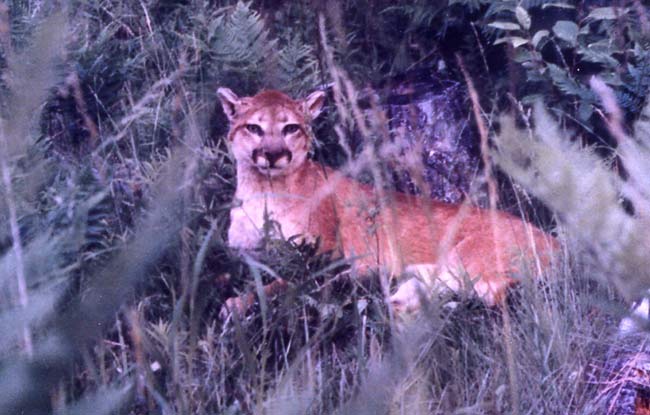Michigan Cougars Not Extinct, Animal Droppings Indicate

Get the world’s most fascinating discoveries delivered straight to your inbox.
You are now subscribed
Your newsletter sign-up was successful
Want to add more newsletters?

Delivered Daily
Daily Newsletter
Sign up for the latest discoveries, groundbreaking research and fascinating breakthroughs that impact you and the wider world direct to your inbox.

Once a week
Life's Little Mysteries
Feed your curiosity with an exclusive mystery every week, solved with science and delivered direct to your inbox before it's seen anywhere else.

Once a week
How It Works
Sign up to our free science & technology newsletter for your weekly fix of fascinating articles, quick quizzes, amazing images, and more

Delivered daily
Space.com Newsletter
Breaking space news, the latest updates on rocket launches, skywatching events and more!

Once a month
Watch This Space
Sign up to our monthly entertainment newsletter to keep up with all our coverage of the latest sci-fi and space movies, tv shows, games and books.

Once a week
Night Sky This Week
Discover this week's must-see night sky events, moon phases, and stunning astrophotos. Sign up for our skywatching newsletter and explore the universe with us!
Join the club
Get full access to premium articles, exclusive features and a growing list of member rewards.
Cougars may be the most controversial of Michigan's 10 million-plus residents. While the state has a history of cougar sightings, whether any actually remain is a source of debate.
Wildlife officials have claimed that cougars were wiped out of Michigan by the 1930s. Yet people have reported mountain lion sightings in 12 areas of Michigan. Cougar and mountain lion are two names for the same animal.
Now a study of DNA from animal droppings may be the first concrete evidence that could lead to a resolution of the state's ongoing catfight.
Wild debate
The Michigan Department of Natural Resources (MDNR) recognized the possible presence of cougars by placing them on the state list of endangered species in 1987, but it has not acknowledged those thought to exist to be of wild origin.
“MDNR officials have often stated that any cougars actually seen must be escaped or released pets," said David Haywood, president of the Michigan Wildlife Conservancy.
The new study, detailed in the April issue of the American Midland Naturalist, involved analysis of droppings collected in the spring season of 2001, 2002 and 2003. The results for 10 droppings produced DNA profiles recognized as cougars, some of which are identified to be of non-pet origin.
Get the world’s most fascinating discoveries delivered straight to your inbox.
The DNA came from cells in feces that had originated in the digestive tracts of the animals.
Not pets
The most DNA information came from a Delta County animal and shows that the animal was a North American cougar, which means that the cat was not from a pet origin. (In addition, one sample was identified to be from a bobcat, and the other from a member of the dog family.)
If the cougar sample had proved to be from South America, then it would be considered of pet origin, because many of the cougars in captivity are from South America.
Based on the distance between the droppings, the researchers determined there were eight wild cougars in Michigan at the time of the study.
The suggestion that at least eight cougars were in the state during that time seem to cast doubt on the suggestion that all the animals were released pets, said study authors Brad Swanson, a geneticist at Central Michigan University, and Patrick Rusz, of the Michigan Wildlife Conservancy.
 Live Science Plus
Live Science Plus











